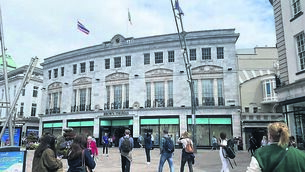Why your 30s are the ideal time to plan finances

- Start - or seriously increase - your pension contributions: Even small monthly amounts now can outperform large contributions later due to the extra years of growth.
- Build an emergency fund: Aim for six months of living expenses. This provides security and stops you raiding long-term savings when life throws a curveball.
- Get clear on your spending: Track your expenses and understand where your money goes. Lifestyle inflation is common in your 30s - so ensure income increases aren’t just being absorbed by subscriptions and takeaways.
- Protect your income: If your ability to earn is your biggest asset, it needs to be protected. Income protection and life cover aren’t exciting, but they are essential.
- Make investing a habit: Don’t wait for a lump sum or a ‘perfect’ time. Set up a monthly investment into a well-diversified fund. Let time and the market do the work.







 App?
App?




